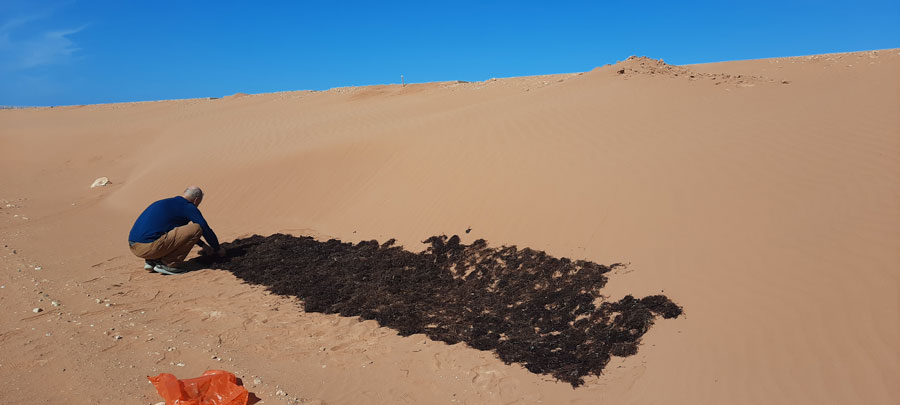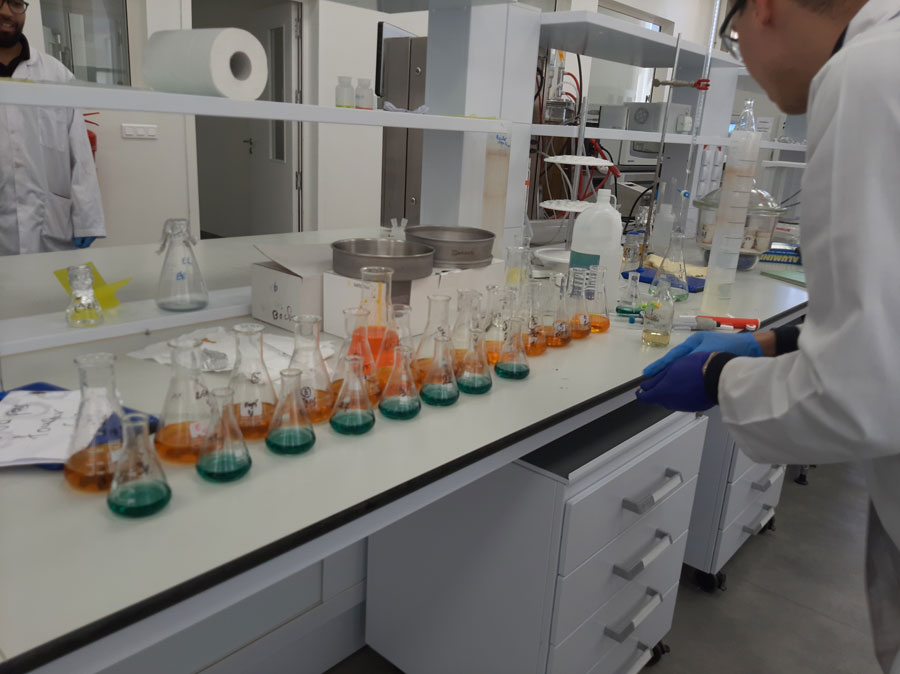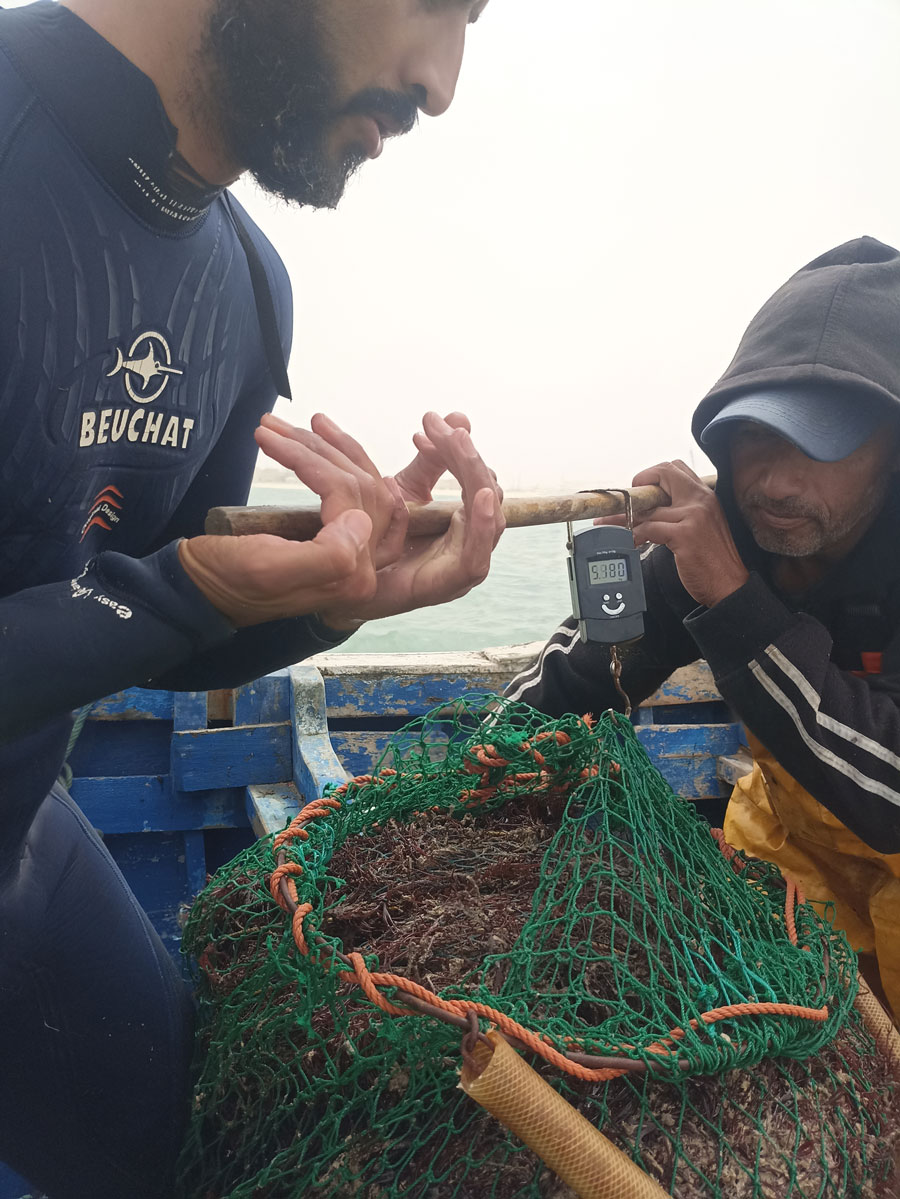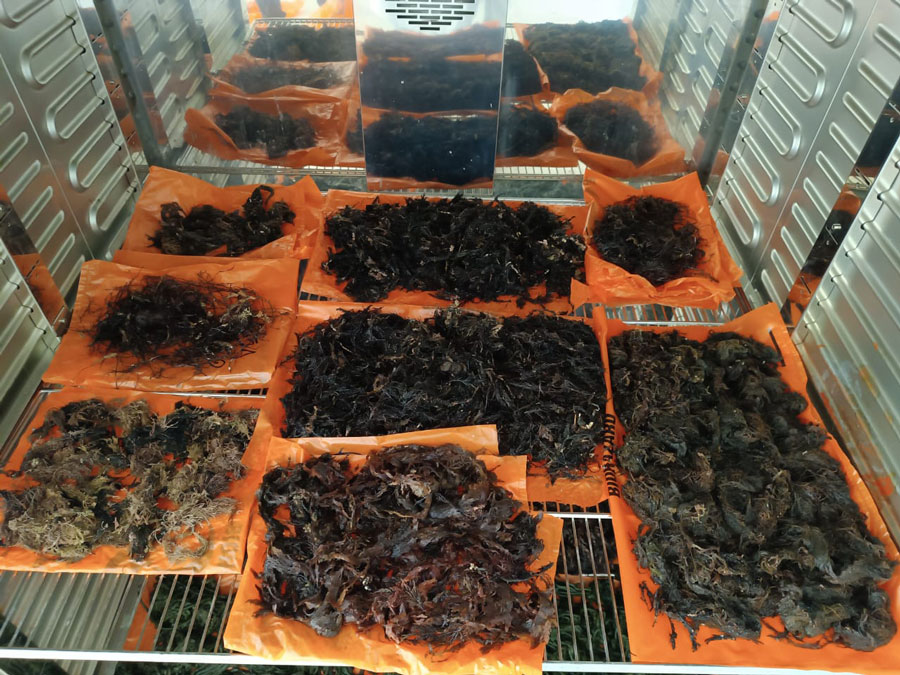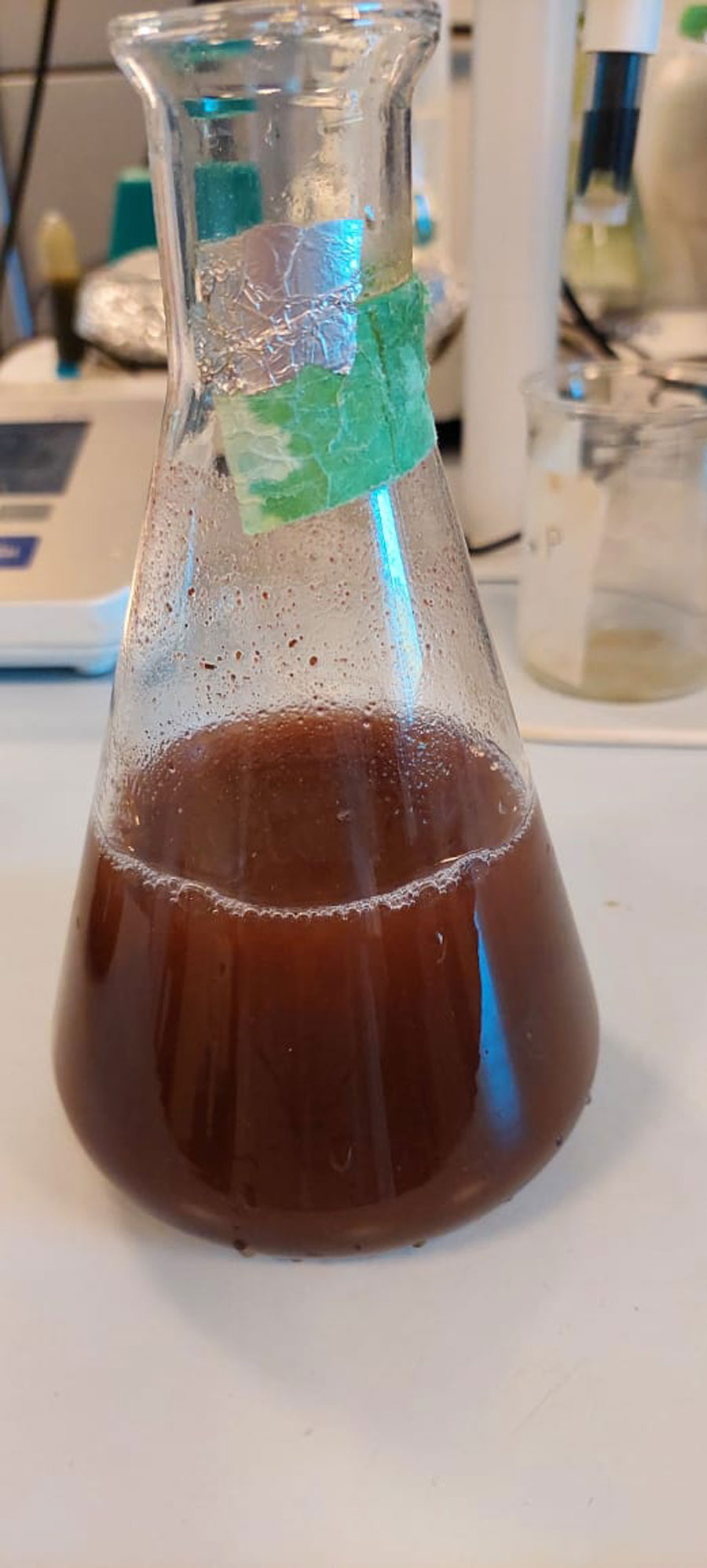VALORIZATION OF HALOPHYTES AND AQUACULTURE
DEVELOPMENT OF SUSTAINABLE INTEGRATED AGRICULTURE FOR SOUTHERN REGIONS
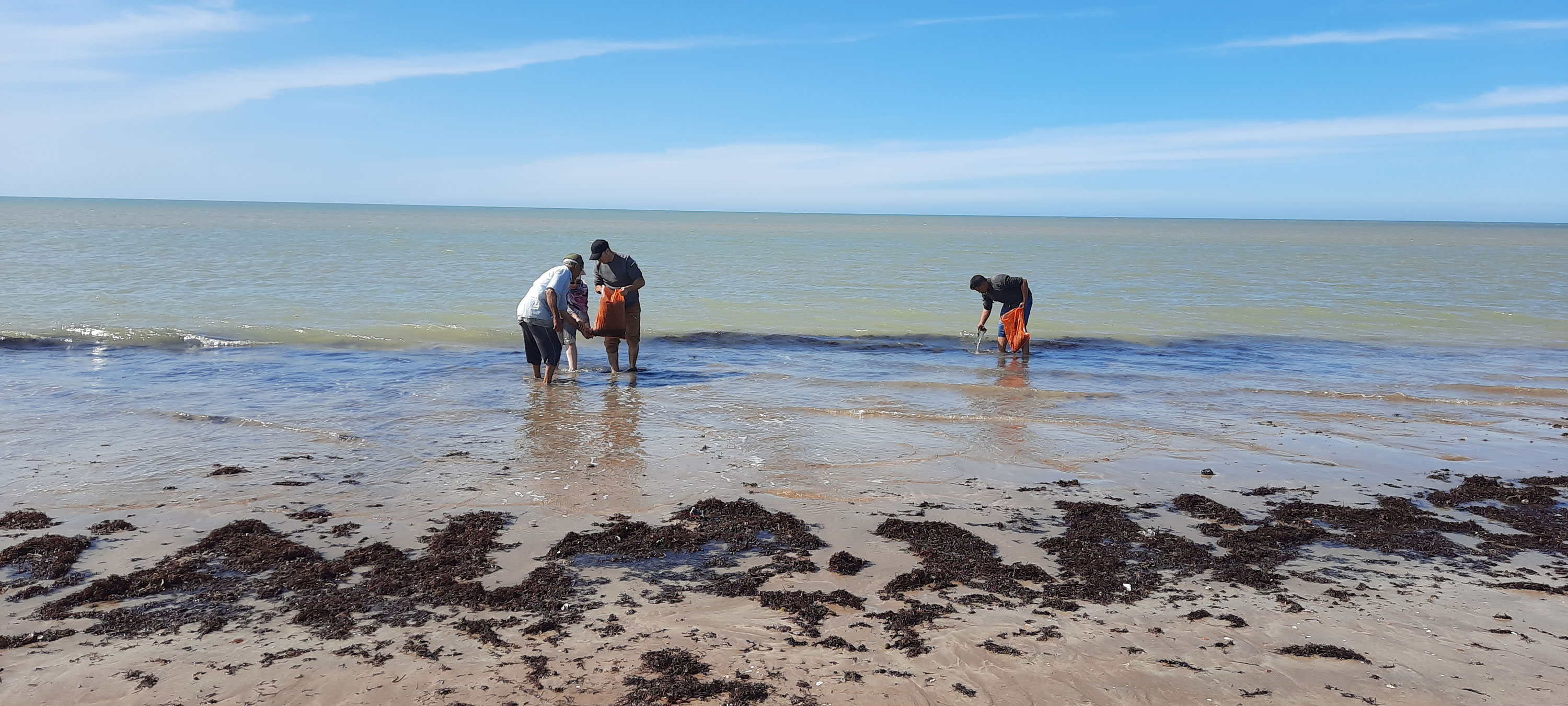
Wishing to strengthen the resilience of agricultural communities and preserve the environment through innovative practices, the Phosboucraa Foundation contributed to an innovative project initiated by UM6P ASARI for the development of sustainable integrated agriculture aimed at promoting halophytes, adapted plants to arid and mainly saline conditions, and to promote aquaculture.
A sustainable development approach that promotes integrated agricultural practices
The installation of halophyte production system at the ASARI site is a key stage of this project. Through collaboration with ICBA, five genotypes of the Salicornia plant have been introduced and are currently being cultivated. These efforts aim to develop agricultural systems that are resilient to climate change and to promote halophytes for human and animal consumption.
The expertise of the ASARI Institute and ICBA was deployed at several levels to carry out this project. Essential equipment, such as fiberglass tanks and adjacent pipes, were acquired for the establishment of the aquaculture system at Boucraâ site. Extensive field technical support was provided to ensure the successful installation of the halophyte production system at ASARI.
Impact on the environment and local communities
This project has a significant impact on the environment by promoting sustainable agricultural practices and using local resources, including saline water, for the cultivation of halophytes. The installation of the halophyte production system at ASARI demonstrates the considerable efforts made by the Foundation to preserve the fragile ecosystems of Southern Regions. Additionally, the introduction of five Salicornia genotypes offers new economic development prospects for local agricultural communities. These key figures, including the installation of the halophyte production system at the ASARI site and the introduction of five Salicornia genotypes, demonstrate the scale and concrete impact of this project.
Halophyte production system installed on the ASARI site
5 genotypes of Salicornia plant introduced and cultivated
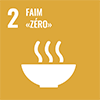

This initiative mainly responds to Sustainable Development Goals N2° (Zero Hunger) and 15 (Life on Land). It aims to strengthen food security, promote sustainable agricultural practices and develop local resources, thus contributing to the elimination of hunger and the preservation of the environment in the Southern Regions.
